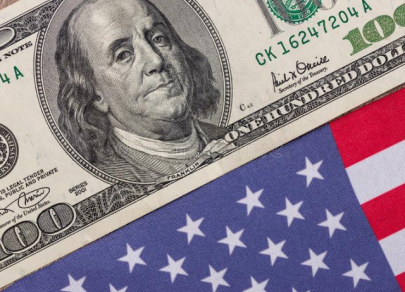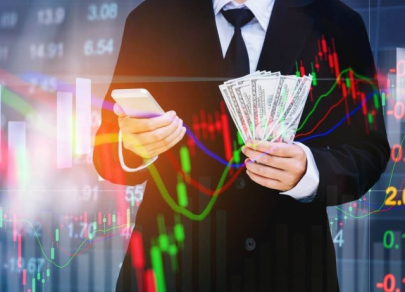FX.co ★ Five conclusions investors arrive at in 2023
Five conclusions investors arrive at in 2023
Fed’s fierce determination
The Fed's decisions have a huge influence on the financial market and investors’ actions. At the start of 2023, interest rate expectations were mixed. Notably, the Fed has been tightening monetary policy for nine months at the fastest pace since the 1980s. However, many investors refused to believe in the aggressive approach of the central bank. Earlier, they supposed that in the first half of 2023, the key rate would have reached a peak of 5%, after which the Fed would have begun to cut it. However, the central bank officials have made it clear that at the end of the year, the interest rate will be above 5%, and the drop should not be expected until 2024. As a result, the regulator was in a win-win situation. By continuing to raise rates even during the short-term banking crisis in the US, the Fed convinced investors that it was ready to fight inflation. Traders are now sure that the Fed's benchmark rate will remain at 5.4% by the end of this year. This is a big win for the central bank, whose credibility has been damaged by its lackluster response to recent price increases.

Bigger number of borrowers and loans
According to analysts, most borrowers are coping well with the difficulties and feel quite confident. Previously, during periods of low interest rates, a jump in the cost of loans seemed unbelievable. As a result, higher interest rates have been admitted by investors rather calmly. This year, the default rate for high-yield borrowers has soared to 3%. However, this is much lower than during the previous turmoil. For your reference, after the global financial crisis of 2008, the default rate exceeded 14%. At the same time, many companies are actively spending cash reserves and using cheap debt obligations fixed before the rate hike. At this point, interest coverage ratios for unsecured borrowers are near their most sustainable level in 20 years.

Easing fears of another bank collapse
This year, investors have realized that not every bank collapse is equivalent to the long-standing financial catastrophe that occurred in 2008 and triggered the global crisis. During the panic spurred by the collapse of Silicon Valley Bank (SVB), investors expected the worst, but no catastrophe occurred. Nevertheless, depositors withdrew their funds from other regional banks (Signature Bank and First Republic Bank), which also went bankrupt. However, a full-scale financial crisis was avoided. Stock markets stabilized fairly quickly despite the fact that the KBW Bank Index collapsed by 20%. According to analysts, a series of bankruptcies of American banks stopped thanks to a large-scale package of measures introduced by the Federal Reserve. These measures considerably supported medium and small banks. However, such assistance may have the opposite effect. The fact is that many banks may just rely on the regulator, ignoring the existing risks.

Rising bets on tech giants’ stocks
Lower fears of the onset of another financial crisis have forced investors to put money into the shares of large technology firms. Notably, 2022 proved to be a challenging year for investors in the stocks of US tech giants. Last year, the leading corporations (Alphabet, Amazon, Apple, Microsoft, and Tesla) were considered practically invulnerable, but this impression turned out to be deceptive. At the same time, the increase in interest rates slackened the growth of these shares. During 2022, the stock prices of these five firms slumped by 38%, while other members of the S&P 500 index lost only 15%. Now, these companies are back in the game. In the first half of 2023, the main IT companies led the US stock market. The tech companies, joined by Nvidia, soared so high that by July they accounted for more than 60% of the value of the Nasdaq 100 index. This tech boom is reflecting the intense excitement among investors who have begun to invest massively in stocks of AI-related companies.

No panic about an inverted yield curve
Previously, many investors feared that an inverted yield curve could cause the same damage as a crisis. However, events that have taken place in the financial market this year have dispelled all the doubts. The recent rally in the stock market shows that not only analysts but also bond investors are now predicting a recession. As a rule, long-term bond yields exceed short-term bond yields, reducing risks for long-term investors. However, since October 2022, the yield curve has been in a state of inversion: short-term rates have been higher than long-term ones. Analysts considered this a reliable sign of an approaching recession. However, now the situation has changed: a large-scale recession has not occurred. Such an inversion of the yield curve (which is measured by the difference in the yield of ten-year and three-month Treasury bonds) has been observed eight times in the last 50 years. In each such instance, a recession took place. In the current situation, the rule has not worked. However, experts urge not to fall into euphoria as the Fed may take unexpected steps. If inflation drops significantly, the Fed will have to cut rates, and low long-term rates may cause a recession, analysts warn.






















